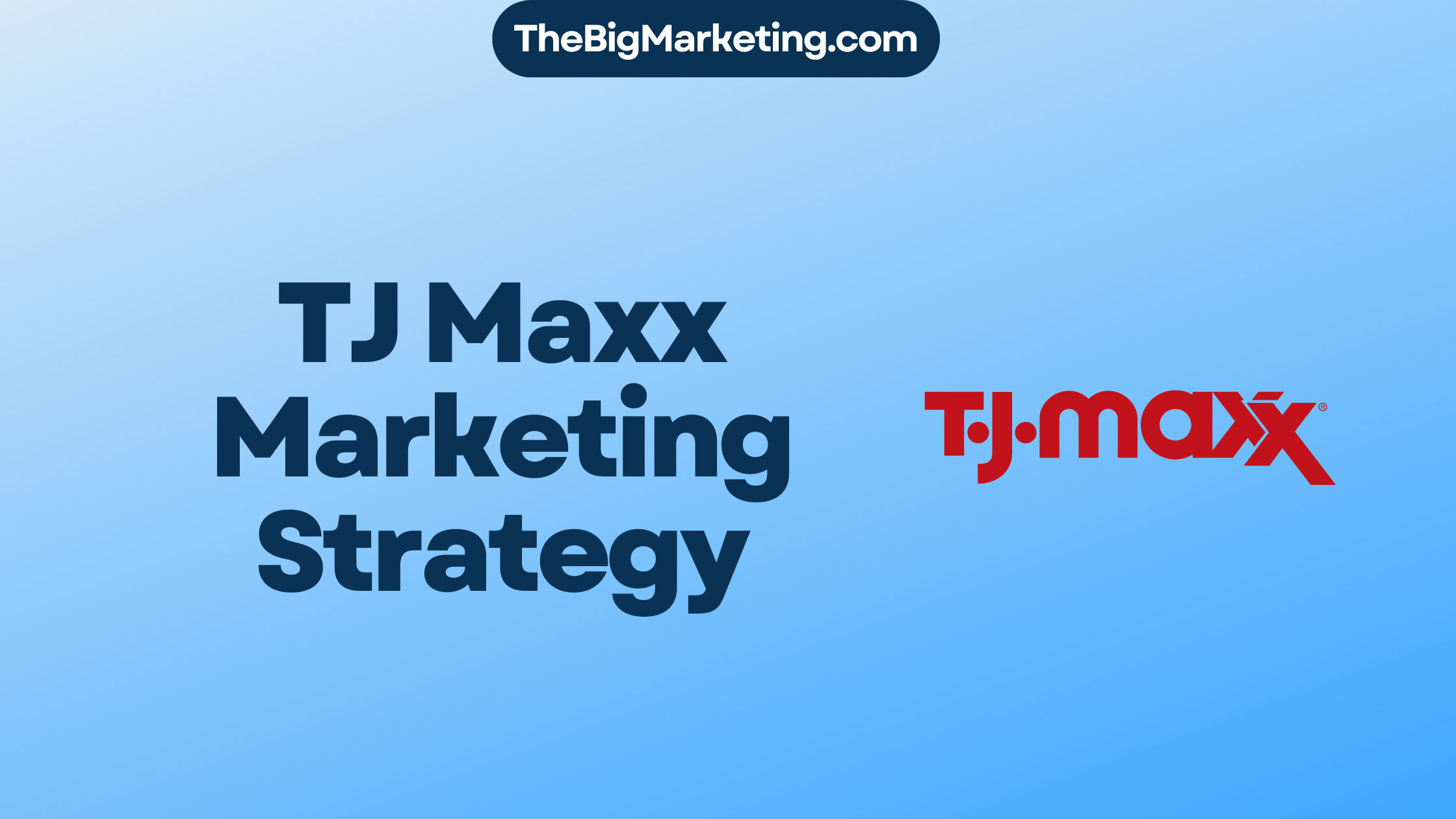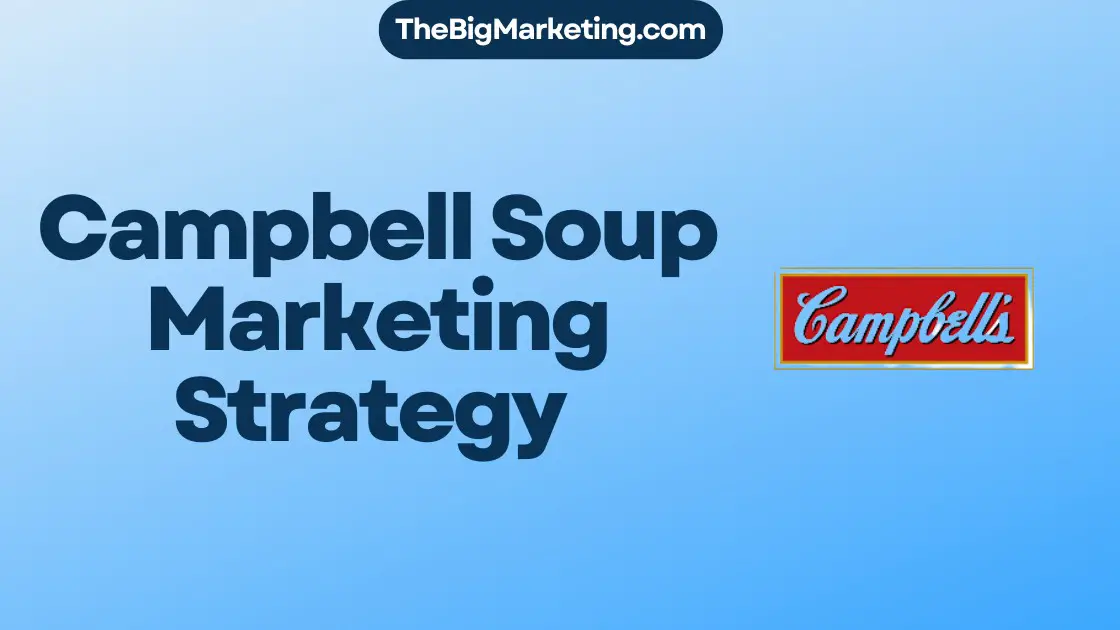Marketing project managers play a crucial role in the success of marketing campaigns. They are responsible for organizing and managing various aspects of marketing projects, ensuring they are executed effectively and achieve the desired results. In this guide, we will explore the key responsibilities, duties, and roles of a marketing project manager in detail.
A marketing project manager’s primary responsibility is to design, manage, and evaluate marketing campaigns. They work closely with advertising and creative departments to develop effective strategies and messaging that resonate with the target audience. Additionally, they direct social media engagement strategies and review advertising materials to ensure consistency and quality.
Market research is another important aspect of a marketing project manager’s job. They need to stay informed about market trends, competitor activities, and customer preferences to make data-driven decisions that drive business growth. By analyzing market trends, they can identify opportunities and create marketing initiatives that maximize engagement with the target audience.
Managing budgets is an essential part of a marketing project manager’s duties. They need to allocate resources appropriately and ensure that marketing initiatives are implemented within the set financial parameters. By effectively managing budgets, they can optimize spending and achieve the maximum return on investment.
Another vital responsibility of a marketing project manager is to oversee the marketing department and collaborate with team members. They need to ensure that projects are progressing smoothly, tasks are completed on time, and communication within the team is efficient. Additionally, they are responsible for reporting and analyzing key project results, such as milestones, resource utilization, and project progress.
Overall, the role of a marketing project manager is diverse and dynamic, requiring a combination of technical and soft skills. They need to have a deep understanding of marketing principles and strategies, as well as excellent organizational, communication, and analytical abilities. By effectively managing marketing projects, they contribute to the overall success of the business.
Key Takeaways:
- A marketing project manager is responsible for designing, managing, and evaluating marketing campaigns.
- They collaborate with advertising and creative departments to develop effective strategies and messaging.
- Market research is crucial for identifying trends and maximizing engagement with the target audience.
- Managing budgets and resources is essential to optimize spending and achieve maximum ROI.
- Effective communication, organization, and analytical skills are key to success in this role.
What is Marketing Management?
Marketing management involves organizing and managing marketing campaigns to raise awareness and generate demand for products and services. Marketing managers play a crucial role in the communication between a business and its customer base. They are responsible for designing, managing, and evaluating marketing campaigns, as well as directing social media engagement strategy, managing budgets, collaborating with advertising and creative departments, reviewing advertising material, performing market research, managing marketing department employees, and analyzing market trends.
Marketing managers typically work in corporate environments across various industries such as health care, hospitality, entertainment, finance, and technology. Their main objective is to drive brand recognition, customer engagement, and ultimately, business growth. In order to succeed in this role, marketing managers need to possess a deep understanding of target markets and consumer behavior, as well as strong strategic thinking and problem-solving skills.
A bachelor’s degree in marketing, advertising, communications, or a related field is usually required for management positions in marketing. Some companies may also prefer candidates with a master’s degree or an MBA. In addition to formal education, marketing managers need to continuously update their skills and knowledge to stay ahead in the ever-evolving marketing landscape.
| Marketing Management Responsibilities | Marketing Manager Job Description | Marketing Manager Duties |
|---|---|---|
| Designing, managing, and evaluating marketing campaigns | Directing social media engagement strategy | Managing budgets |
| Collaborating with advertising and creative departments | Reviewing advertising material | Performing market research |
| Managing marketing department employees | Analyzing market trends |
Marketing management requires a combination of analytical, creative, and leadership skills. By leveraging market insights, employing innovative strategies, and effectively managing resources, marketing managers can drive successful marketing initiatives and contribute to the overall growth and success of their organizations.
Role of Marketing Manager
A marketing manager plays a pivotal role in an organization’s marketing efforts. They are responsible for leading and supervising marketing teams, setting strategic goals, and ensuring the successful execution of marketing campaigns. The role of a marketing manager includes:
- Developing and implementing marketing strategies that align with business objectives
- Conducting market research and analyzing consumer trends to identify target markets and customer needs
- Collaborating with cross-functional teams to develop and execute integrated marketing campaigns
- Establishing and maintaining relationships with key stakeholders, including clients, vendors, and industry influencers
- Monitoring and analyzing marketing metrics to measure campaign effectiveness and make data-driven decisions
- Managing marketing budgets and allocating resources effectively
- Leading and mentoring marketing team members, fostering a collaborative and creative work environment
Overall, marketing managers play a critical role in driving brand awareness, customer acquisition, and revenue growth through strategic planning, effective execution, and continuous evaluation and optimization of marketing campaigns. They are instrumental in shaping a company’s brand image and reputation in the market.
How to Become a Marketing Manager
If you aspire to become a marketing manager, there are several steps you can take to pursue this rewarding career. While companies typically prefer candidates with a bachelor’s degree in marketing, advertising, communications, or a related field, formal education alone is not enough. To excel in this role, you need to develop a diverse set of skills, complemented by the right experience and certifications.
Education:
Start by obtaining a bachelor’s degree in marketing, advertising, communications, or a related field. This will provide you with a solid foundation of knowledge in marketing principles and strategies. To further enhance your credentials, consider pursuing a Master of Business Administration (MBA) with a marketing concentration. An MBA can equip you with advanced business and marketing skills and open doors to higher-level positions.
Skills:
While education is important, marketing managers also need a specific set of skills to succeed in their role. These skills include:
- Writing and public speaking skills to effectively communicate marketing messages.
- SEO fundamentals to optimize online presence and increase visibility.
- Analytical skills to interpret marketing data and make data-driven decisions.
- Creative thinking to develop innovative marketing strategies and campaigns.
- Interpersonal skills to collaborate with cross-functional teams and build positive relationships.
- Project management skills to plan and execute marketing initiatives effectively.
- Technical skills in areas such as project management software, email marketing tools, and SEO tools.
- Leadership skills to inspire and motivate team members and drive marketing success.
It is important to continuously improve and update your skills to stay relevant in the rapidly evolving marketing industry. Consider taking relevant classes, workshops, or online courses to enhance your skillset. Additionally, building a strong portfolio showcasing your best work in the field can demonstrate your expertise to potential employers.
Certifications:
Earning a relevant certification can add credibility to your profile and set you apart from other candidates. There are various marketing certifications available, such as the Professional Certified Marketer (PCM) certification offered by the American Marketing Association (AMA) and the Digital Marketing Certified Associate (DMCA) certification offered by the Digital Marketing Institute. Research the certifications that align with your career goals and industry requirements to enhance your marketability.
By combining the right education, skills, and certifications, you can position yourself as a strong candidate for marketing manager roles. Remember to continuously learn and adapt to the changing landscape of marketing to stay ahead in this dynamic field.
| Career Milestones | Education | Skills | Certifications |
|---|---|---|---|
| Entry-level Marketing Assistant/Coordinator | Bachelor’s degree in marketing, advertising, communications, or related field | Strong communication skills, basic knowledge of marketing principles | N/A |
| Marketing Specialist/Analyst | Bachelor’s degree in marketing, advertising, communications, or related field | Analytical skills, digital marketing knowledge, ability to interpret data | N/A |
| Marketing Manager | Bachelor’s degree in marketing, advertising, communications, or related field (MBA preferred) | Strong leadership, project management, and strategic thinking skills | Professional Certified Marketer (PCM), Digital Marketing Certified Associate (DMCA) |
| Senior Marketing Manager/Marketing Director | Bachelor’s degree in marketing, advertising, communications, or related field (MBA preferred) | Advanced leadership, strategic planning, and budgeting skills | Advanced certifications such as Certified Marketing Executive (CME) |
The Importance of Marketing Project Management
Marketing project management plays a critical role in ensuring the success of marketing campaigns. By effectively planning, overseeing, and delivering marketing-related projects, marketing teams can control the outcome and achieve their project goals. Transparent project planning and execution provide a roadmap for project progress, promote better information sharing and collaboration, and ensure tasks are completed on time and within budget.
Without proper project management, marketing projects may face delays, team members may lose focus, and important information may be overlooked. This can lead to missed opportunities and ineffective campaigns. However, by implementing best practices in marketing project management, marketing teams can significantly improve project outcomes and maximize their impact.
Benefits of Marketing Project Management
There are several key benefits to implementing marketing project management:
- Improved project outcomes: Effective project management ensures that projects are completed successfully, meeting the desired goals and objectives.
- Efficient resource allocation: Through proper project management, resources such as time, budget, and manpower can be allocated and optimized effectively.
- Enhanced collaboration and communication: Project management facilitates better communication and collaboration between team members, stakeholders, and departments, leading to improved coordination and alignment.
- Timely project completion: With clear project timelines and milestones, marketing project management helps ensure that tasks are completed on time, avoiding delays and disruptions.
- Cost control: By carefully managing budgets and resources, marketing project management allows for better control and optimization of project costs.
- Increased productivity: Streamlined processes, task management, and effective project coordination lead to higher productivity, enabling marketing teams to accomplish more in less time.
Marketing Project Management Best Practices
To achieve the best results in marketing project management, it is important to follow these best practices:
- Create defined project phases: Break down projects into manageable phases with clear objectives and deliverables to ensure clarity and focus.
- Set specific project objectives and deliverables: Clearly define the desired outcomes and deliverables of each project to ensure alignment within the team and with stakeholders.
- Break tasks into manageable chunks: Divide complex tasks into smaller, actionable steps to improve efficiency and manageability.
- Utilize project management software: Leverage the power of project management software to streamline processes, automate tasks, and centralize project-related information.
- Establish effective communication channels: Foster open and transparent communication channels to ensure clear and timely information sharing.
- Regularly monitor and evaluate progress: Continuously track project progress, monitor key metrics, and adapt strategies as needed to ensure project success.
By adhering to these best practices, marketing teams can enhance their project management capabilities and drive successful marketing initiatives.
| Key Benefits | Best Practices |
|---|---|
| Improved project outcomes | Create defined project phases |
| Efficient resource allocation | Set specific project objectives and deliverables |
| Enhanced collaboration and communication | Break tasks into manageable chunks |
| Timely project completion | Utilize project management software |
| Cost control | Establish effective communication channels |
| Increased productivity | Regularly monitor and evaluate progress |
What Does a Marketing Project Manager Do?
A marketing project manager’s role is multifaceted and dynamic. They play a critical role in planning, executing, and overseeing successful marketing campaigns. As a marketing project manager, their responsibilities encompass a wide range of tasks that contribute to the overall success of marketing initiatives.
One of the key responsibilities of a marketing project manager is to define project goals, objectives, and target outcomes. They work closely with leadership to translate marketing strategies into actionable plans. By aligning projects with marketing goals, they ensure that the team is focused on achieving the desired outcomes.
Researching best practices and tactics for marketing campaigns is also an important aspect of a marketing project manager’s role. They stay updated on industry trends, market research, and competitor analysis to implement effective strategies and stay ahead of the curve.
Organizing people and resources to get a project moving is another crucial responsibility. Marketing project managers collaborate with cross-functional teams to assign tasks, set deadlines, and ensure the project progresses smoothly. They play a vital role in coordinating efforts and maintaining effective communication among team members.
Once a marketing project is in progress, marketing project managers oversee its execution. They closely monitor project timelines, ensure tasks are completed on time, and manage resources efficiently. By providing guidance and support, they help their team members deliver high-quality work that aligns with project objectives.
Effective communication is a key skill for marketing project managers. They manage communication channels with internal and external stakeholders, ensuring consistent messaging and updates throughout the project. This includes coordinating with marketing team members, collaborating with advertising agencies, and reporting progress to leadership.
In addition to project execution, marketing project managers are responsible for reporting and analyzing key project results. They track task and subtask milestones, analyze resource utilization, and monitor project progress. By evaluating project outcomes, they gather insights and identify areas for improvement, contributing to the continuous optimization of marketing strategies.
To succeed in their role, marketing project managers need a combination of technical and soft skills. Time management is crucial for effectively juggling multiple projects and deadlines. They must also possess budgeting and resource allocation skills to optimize spending and achieve maximum return on investment.
Work organization skills are essential, enabling marketing project managers to manage complex projects and coordinate team efforts. Effective communication skills facilitate collaboration, ensuring that everyone is aligned and working towards the same goals.
Key Responsibilities of a Marketing Project Manager:
- Define project goals, objectives, and target outcomes
- Research best practices and tactics for marketing campaigns
- Organize people and resources to initiate projects
- Oversee project execution and progress
- Collaborate with cross-functional teams and stakeholders
- Manage communication channels
- Report and analyze key project results
- Utilize time management, budgeting, and resource allocation skills
- Demonstrate effective work organization and communication
A marketing project manager plays a vital role in driving the success of marketing initiatives. By effectively managing projects, coordinating team efforts, and ensuring clear communication, they contribute to achieving marketing objectives and delivering impactful campaigns.
The Marketing Project Management Process
The marketing project management process is a systematic approach to planning, executing, and controlling marketing projects. By following a structured process, marketing teams can ensure the successful implementation of their campaigns and achieve their desired outcomes. This section provides an overview of the key phases involved in the marketing project management process, as well as the role of marketing project management software in streamlining and optimizing project workflows.
Phases of Marketing Project Management
The marketing project management process consists of several distinct phases that guide the project from start to finish. These phases include:
- Planning and Goal-Setting: In this phase, project objectives and goals are defined, target audiences are identified, and marketing strategies are developed.
- Organization and Resource Allocation: The second phase involves organizing the project team, allocating resources, and establishing clear roles and responsibilities.
- Execution of Tasks and Deliverables: In this phase, the marketing project is put into action, with tasks being executed according to the project plan.
- Control and Monitoring of Progress: This phase involves monitoring the project’s progress, tracking key metrics, and making any necessary adjustments to ensure project success.
- Project Closure: The final phase consists of wrapping up the project, evaluating its overall performance, and documenting lessons learned for future projects.
By dividing the marketing project into these distinct phases, it becomes easier to manage and track progress, assign tasks to team members, and ensure that the project is on track to meet its goals and objectives.
Marketing Project Management Software
To streamline and optimize the marketing project management process, many organizations turn to marketing project management software. This software provides digital workspaces that foster collaboration, streamline task management, and facilitate progress tracking. Key features of marketing project management software include:
- Task Management: Marketing project management software allows teams to create and assign tasks, set deadlines, and track progress in real-time.
- Team Collaboration: Digital platforms provide centralized spaces for team members to communicate, share files, and collaborate on projects, regardless of their physical location.
- Progress Tracking: With marketing project management software, teams can easily monitor project milestones, track key metrics, and generate progress reports.
By leveraging the capabilities of marketing project management software, teams can improve efficiency, enhance communication, and stay organized throughout the entire project lifecycle.
The integration of marketing project management software streamlines workflows, improves task visibility, and enables timely decision-making, ultimately leading to the successful completion of marketing projects.
Essential Skills for Marketing Project Managers
Marketing project managers play a crucial role in planning, executing, and overseeing successful marketing campaigns. To excel in this role, they require a combination of technical and soft skills that enable them to navigate the complex landscape of project management. Here are some essential skills that every marketing project manager should possess:
-
Time Management
Effective time management is vital for marketing project managers who need to juggle multiple projects and tasks. They must prioritize activities, set realistic deadlines, and ensure that projects stay on track.
-
Budgeting and Resource Allocation
Marketing project managers must have strong budgeting and resource allocation skills. They need to optimize spending and allocate resources effectively to achieve maximum return on investment (ROI).
-
Work Organization
Efficient work organization is essential to manage marketing projects successfully. Marketing project managers should be adept at creating project schedules, coordinating tasks, and ensuring smooth project management and coordination across teams.
-
Effective Communication
Effective communication is key for marketing project managers. They need to collaborate with marketing team members, senior leadership, and various stakeholders. Clear and concise communication ensures that everyone is aligned and working towards common goals.
-
Analytical Skills
Marketing project managers need strong analytical skills to monitor project progress and evaluate key results. They should be able to analyze data, identify trends, and make data-driven decisions to optimize project outcomes.
-
Problem-solving and Decision-making
Challenges and roadblocks are inevitable in marketing projects. Marketing project managers must possess excellent problem-solving and decision-making skills to overcome obstacles swiftly and make informed choices that keep projects on track.
-
Leadership
Leadership skills are vital for marketing project managers. They need to motivate and guide their marketing teams, foster collaboration, and inspire teams to achieve project goals. Strong leadership abilities help create a positive and productive work environment.
In addition to these skills, marketing project managers should have a deep understanding of marketing principles and strategies. They must be adaptable and thrive in fast-paced environments that require collaboration and agility. By honing these essential skills, marketing project managers become invaluable assets to their organizations, delivering successful marketing initiatives that drive business growth.
Advantages of Marketing Project Management Software
Marketing project management software offers several advantages for marketing teams. It provides a centralized platform for task management, collaboration, and progress tracking, allowing for efficient communication and information sharing.
With marketing project management software, teams can create and track project timelines, assign tasks to team members, set priorities, and monitor progress. This helps in ensuring that all project activities are carried out in a timely and organized manner.
Additionally, marketing project management software facilitates resource allocation and budget tracking. It allows teams to allocate resources effectively, ensuring that the right people are assigned to the right tasks. Budget tracking features help in monitoring project expenses and ensuring adherence to financial goals.
The visual interfaces and customizable features of marketing project management software make it easy to plan, execute, and control marketing projects. The software provides visual representations of project timelines, task dependencies, and milestones, helping teams to visualize project progress and make informed decisions.
Improved Collaboration and Productivity
- Marketing project management software enables teams to collaborate seamlessly by providing a centralized platform for communication, file sharing, and document management. It eliminates the need for multiple tools and email threads, allowing team members to work together efficiently.
- Teams can coordinate tasks, share updates, and provide feedback in real-time, leading to improved collaboration and faster decision-making.
- The software also offers features like task assignments, notifications, and reminders, ensuring that team members stay accountable and on track.
Streamlined Workflow and Project Control
- Marketing project management software helps in streamlining workflow by providing predefined templates, workflows, and approval processes. These templates can be customized to match specific project requirements, ensuring consistency and efficiency.
- Project managers can easily assign tasks, set deadlines, and track progress through automated workflows, reducing the chances of miscommunication and missed deadlines.
- The software also enables project managers to have better control over project resources, timelines, and budgets. Real-time dashboards and reports provide visibility into project status, allowing for quick adjustments and effective decision-making.
By streamlining processes and improving productivity, marketing project management software allows teams to meet project goals and achieve better outcomes. It enhances collaboration, facilitates efficient resource allocation, and provides project control and visibility. Adopting marketing project management software can significantly contribute to the success of marketing initiatives.
| Advantages of Marketing Project Management Software | Explanation |
|---|---|
| Centralized platform | Streamlines communication and information sharing among team members. |
| Task management | Enables efficient assignment, tracking, and completion of tasks. |
| Resource allocation | Facilitates effective allocation of resources within projects. |
| Budget tracking | Helps in monitoring project expenses and adhering to financial goals. |
| Visual interfaces | Provides visual representations of project timelines, tasks, and milestones. |
| Improved collaboration | Enables seamless communication, file sharing, and document management. |
| Streamlined workflow | Provides predefined templates and workflows for consistent and efficient project execution. |
| Project control | Offers real-time dashboards, reports, and visibility into project status. |
Conclusion
Marketing project managers play a vital role in planning, executing, and overseeing successful marketing campaigns. They are responsible for defining project objectives and researching best practices to achieve desired outcomes. By organizing resources, collaborating with team members, and managing communications with stakeholders, marketing project managers ensure effective project execution. Additionally, they analyze project results to measure success and identify areas for improvement.
One of the key tools that marketing project managers can leverage is marketing project management software. This software significantly enhances project efficiency and productivity by providing centralized platforms for task management, collaboration, and progress tracking. With features such as project timelines, resource allocation, and budget tracking, marketing teams can streamline processes and meet project goals more effectively. Utilizing marketing project management software allows for better communication, information sharing, and coordination, resulting in improved project outcomes.
To excel in their role, marketing project managers need to develop a strong blend of technical and soft skills. Time management, budgeting, and resource allocation skills are essential for efficient project management. Effective communication, analytical thinking, and problem-solving abilities enable effective collaboration and decision-making. By continuously developing these skills and staying updated with marketing strategies and best practices, marketing project managers can effectively lead their teams, meet project goals, and contribute to the success of marketing initiatives.








